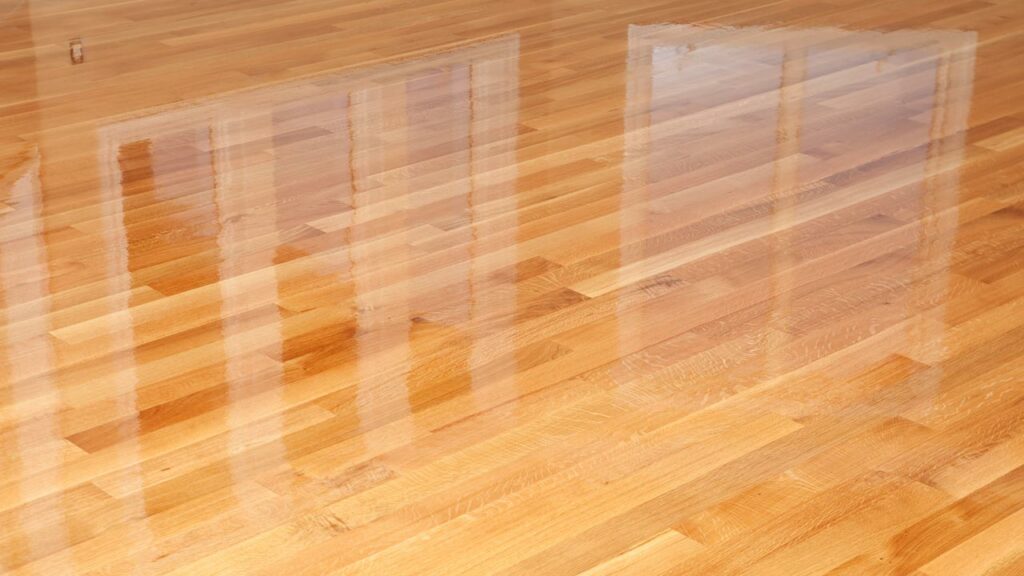A hard-wearing phenolic resin countertop like epoxy and polyurethane are commonly used in busy industrial plants that put their surfaces through a great deal of wear and tear, all due to physical impacts, point loads, and equipment use.
These factors can negatively affect floors or solid surface countertops finish. Additionally, if the coating is too thin, hairline cracks can form and increase the risk of bacteria growth from moisture.
Coatings like polyurethane phenolic resin and epoxy exhibit outstanding performance characteristics such as acid chemical resistance, abrasion resistance, scratch resistance, water-resistant, ease of maintenance, and aesthetic appeal.
The following comparison will highlight some key differences between the two, so you can decide what will suit your needs best. Use this as a guide to help you choose between a polyurethane phenolic resin or epoxy coat, depending on the environment in which they will be used.
What are Epoxy Coatings?
Let’s first define what epoxy is. It is an organic compound that requires careful measurement and mixing of each component. Hardening is achieved by heating, using air, or using chemicals to make epoxy resin.
It’s a protective layer that goes over existing cement or concrete substrates. Using epoxy to coat the floors protects them from mechanical abrasion. Typically, they are found in warehouses, logistics centers, dry process manufacturing plants, and facilities where forklifts are present.
Different types of epoxy are available, including water-based, solvent-based, and 100% solids, and each of these types will give you various benefits. In addition to serving as a floor coating, this resin has other uses. Its many uses are coating epoxy resin countertops, cement binder, adhesive, and several others.
Epoxy resin is incredibly easy to apply and allows for varying levels of thickness which is generally between 3 mils to 15 mils. It provides a very durable and long-lasting floor that can withstand heavy abuse.
The advantage of epoxies is that they’re made with varying volatile organic compounds (VOC) levels, this is what gives paints their strong smell. In most epoxy formulations, you can request a low VOC.
What is Polyurethane Coatings?
Polyurethane synthetic polymer, known as PU phenolic resin coating, consists of organic units joined by carbamate or urethane bonds. They are usually seen in laboratories, and in environments that need high resistance to high heat.
PU phenolic resin is an alternative floor coating with a wide range of applications. Additionally, polyurethanes are thermosetting polymers often used as topcoats in flooring. Synthetic resins are often used for woodworking, such as cabinets, molding, and phenolic resin countertops. Some PU resins are water-based, while others are solvent or oil-based.
Polyurethanes prevent corrosion and degradation of surfaces—and are fire and chemical resistant. It is available in both gloss and matte finishes. In contrast to epoxy, it has better UV resistance. Further, if a top coating is applied, the material is scratch-resistant.
The flexibility of polyurethane is greater than that of epoxy. Due to this, polyurethane is particularly useful for areas exposed to wet conditions and extreme temperature swings, as well as harsh chemicals and corrosive ingredients.
However, its thin, dry film thickness and weak bonding with concrete make polyurethane an ineffective self-leveling material to fill in small cracks and divots on the surface. It’s also worth noting that most polyurethanes are solvent-based, meaning they can emit high quantities of VOCs and may require respirators when applying.
Epoxy Vs. Polyurethane Coatings: What are their Differences?
While they are often referred to as the same thing, they are, in fact, two different types of floor coatings, each with its specific properties. Check out this comparison of the two systems to ensure you’re selecting the right one.
Molecular Structure
The use of multiple types of components during the curing process of these resins causes the results to vary slightly. The density of PU phenolic resin is higher than that of epoxy, which is why it is harder than the latter.
Professionals in the industrial world have long recognized the strength, durability, and resilience of this type of coating, which comes in handy in a variety of abrasive conditions. Among these conditions are footfall, physical impact, extremes in temperature, and corrosive chemicals.
Versatility
In terms of versatility, epoxy is superior because it easily adapts to different environments. As it can be obtained in vivid colors and glossy finishes, it is a more suitable choice for decorative applications.
While PU flooring and phenolic resin countertops can also be stylish, the epoxy coating provides a more stylish, sleek look, which is crucial to a successful interior design scheme.
Durability
Industrial facilities favor PU systems because they can withstand various challenges daily. It would remain intact even if heavy equipment were placed on top of it.
Different industries applaud the advantages of polyurethane flooring for its strength and ability to enhance production processes. Epoxies, as far as structure goes, are rigid and cannot withstand intense heat.
Cost-Effectivity
In the long run, PU phenolic resin is much more cost-effective than epoxy, despite initially costing more.
PU systems last approximately twice as long as epoxy systems, clocking in at an impressive ten years compared to epoxy’s five. Furthermore, PU coating offers superior wear, abrasion, and impact resistance.
Chemical Resistance
Epoxies cannot withstand organic acids present in high concentrations of food and beverage products. PU phenolic resin systems, on the other hand, offer superior chemical resistance.
Because they are chemical-resistant, phenolic resin laboratory countertops are preferred to be used. Phenolic resin is also resistant to corrosion, inorganic, alkalis, organic alkalis, and solvents.
Heat Resistance
PU phenolic resin offers excellent heat, cold, and thermal shock resistance. In contrast, epoxies are naturally more rigid and can move with a concrete substrate if the temperature changes and increases.
To illustrate this, a two-pack epoxy coating made from 100% solids can withstand temperatures up to 65 °C, while some phenolic resin systems can withstand temperatures of 120 °C.
For food & beverage facilities and laboratories that often experience extreme temperature changes daily, thermal shock and heat resistance are incredibly beneficial. In situations such as steam-cleaned environments, doors of hot ovens are opened, or events where there is the danger of boiling liquids spilling onto the floor.
Application Process
The application of these two coatings also differs. The humidity sensitivity of a PU topcoat is critical from an applicator’s point of view.
Although epoxy resins do not really have moisture resistance, the damage caused by humidity will be far less severe in installation on a concrete surface. Therefore, epoxy is always the better choice for environments with high levels of humidity.
Get Your Premium Quality Phenolic Resin Countertops at ResinTops.net
At ResinTops, we provide epoxy resin countertops and phenolic resin countertops of high quality that can be custom fabricated to meet your specific requirements.
We provide a variety of accessible surface options for epoxy and phenolic resin countertops to match your laboratory work surfaces. We use cutting-edge manufacturing equipment to mold phenolic resin to exact industry requirements.
We can assist you in making a decision if you are thinking about using phenolic resin countertops in your laboratory workspace or design. Email us at sales@labtechsupplyco.com or contact us at 800-476-5228 at ResinTops.net today!


